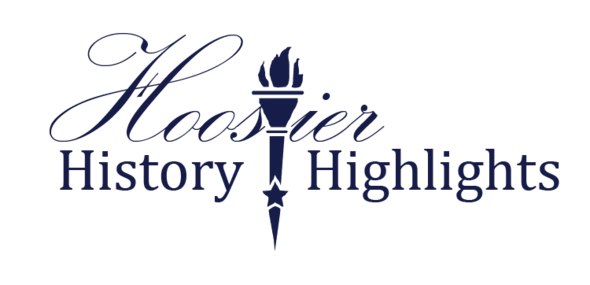This week in Indiana’s history …
 1816 – The Indiana Constitutional Convention was held in the capital city of Corydon. The 43-member assembly elected Jonathan Jennings as president and William Hendricks as secretary. The document they produced, among other provisions, forbade slavery and made public education a state responsibility. The committee finished its work by the end of June. Copies of the Constitution were sent to President James Madison and Congressional leaders.
1816 – The Indiana Constitutional Convention was held in the capital city of Corydon. The 43-member assembly elected Jonathan Jennings as president and William Hendricks as secretary. The document they produced, among other provisions, forbade slavery and made public education a state responsibility. The committee finished its work by the end of June. Copies of the Constitution were sent to President James Madison and Congressional leaders.
1820 – Commissioners appointed by the Indiana Legislature traveled from Corydon into Central Indiana on a mission to find the site for a future capital city. They selected a small village in dense woods by the east bank of the White River. The city of Indianapolis was established and, in 1825, became the new center of government for Indiana.
1893 – Antoinette Dakin Leach was granted the right to practice law by the Indiana Supreme Court. Considered to be the state’s first female attorney, she was active in politics and women’s rights. In 1910, she was the state organizer for the National Woman Suffrage Association. She spent most of her life in Sullivan.
1904 – Governor Winfield Durbin and his wife Bertha visited the Indiana Building at the St. Louis World’s Fair. They were accompanied by a delegation led by J. W. Cockrum of Oakland City, the Secretary of the World’s Fair Commission. The Hoosier State had a large presence at the fair, also called the Louisiana Purchase Exposition.
1949 – John T. McCutcheon died in Lake Forest, Ill. Born in South Raub in Tippecanoe County, he graduated from Purdue University and became a newspaper artist, writer and war correspondent. Known as the “Dean of American Cartoonists,” he won a Pulitzer Prize in 1931 for an editorial cartoon about the economy during the Great Depression.
1958 – British Prime Minister Harold Macmillan delivered the commencement address at DePauw University in Greencastle. He referred to the 410 graduates as “fellow Hoosiers,” noting that his mother, Helen Belles Macmillan, had grown up in Spencer, and that his grandfather, Dr. Josuah Tarleton Belles, was a graduate of DePauw. In his remarks, he said, “The people of the free world must see that their political thought and economic policies catch up with scientific and technical advances.”
